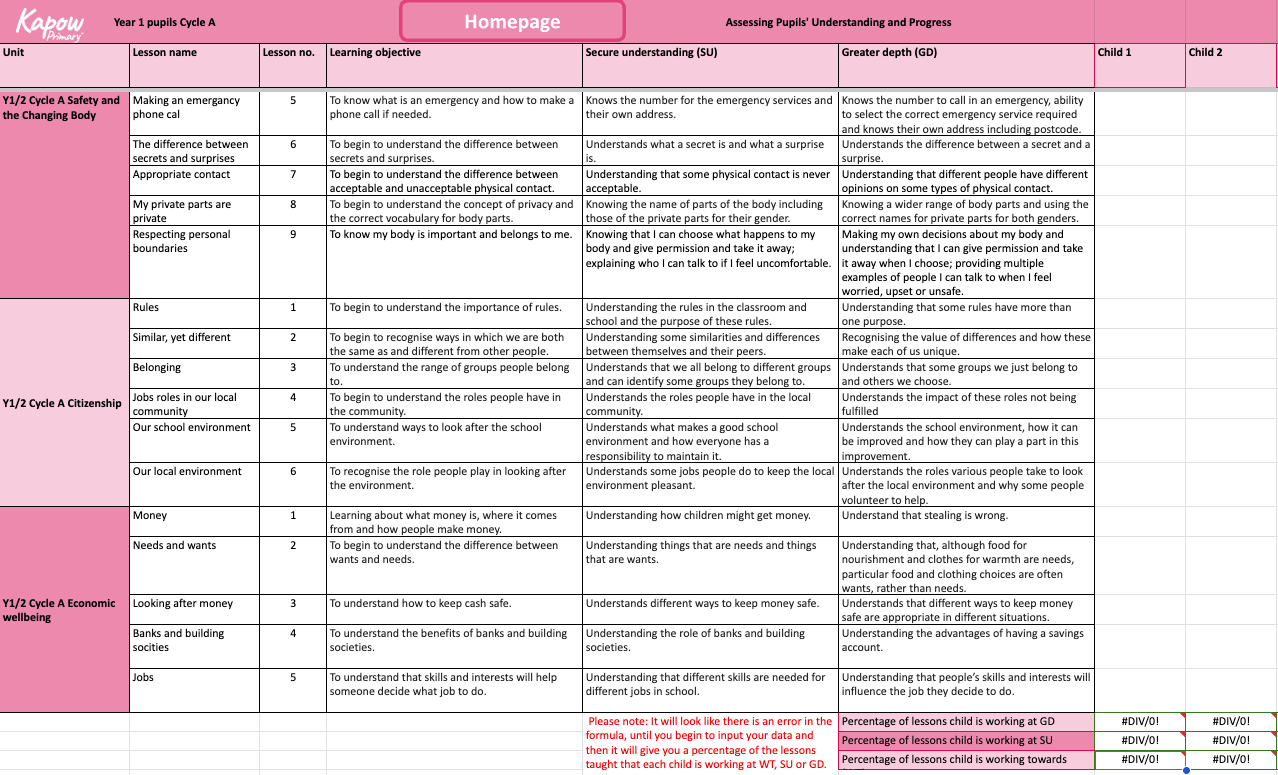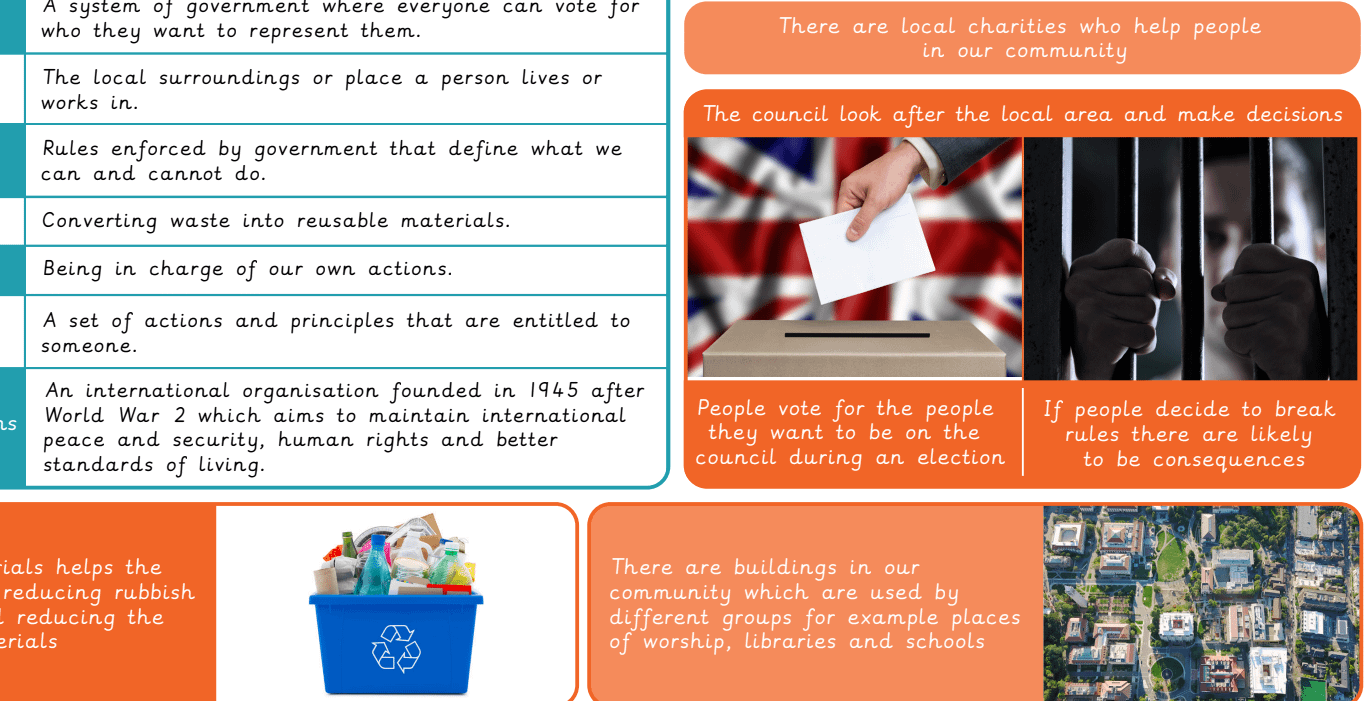Y3/4 (B): Citizenship
This unit hub can be used to inform your medium term plan and to navigate to related resources.
New statutory RSHE guidance is here. We’re creating our brand new RSE & PSHE scheme ready for September 2026. Learn more
- Subjects >
- RSE & PSHE >
- Mixed-age >
-
Y3/4 (B): Citizenship
Unit outcomes
Pupils who are secure will be able to:
- Describe the benefits of recycling.
- Know that there are different groups within the local community and how they use community buildings/places.
- Describe in simple terms the role of a local councillor. Being able to justify why one issue might be more important than another to local people.
- Understand the need for rules and the reason for having consequences of breaking rules.
- Understand that children have rights and how these benefit them.
- Understand what human rights are and why they are important.
Suggested prior learning
Y3/4 (B): Safety and the changing body
Get startedLessons
Y3/4 (B): Lesson 1: Recycling / reusing
To understand the environmental benefits of recycling (Year 3) or reusing (Year 4)
Y3/4 (B): Lesson 2: Local community groups
To understand the groups which make up the community (Y3) To understand the contribution groups make to a community (Y4)
Y3/4 (B): Lesson 3: Local council and democracy
To begin to understand how democracy works in the local area
Y3/4 (B): Lesson 4: Diverse communities
To understand the value of diversity in a community
Y3/4 (B): Lesson 5: Rights of the child
To begin to understand the UN convention on the rights of the child
Y3/4 (B): Lesson 6: Charity
To understand that charities care for others and how people can support them
Key skills
Key knowledge
Related content
Resources
Unit resources

RSE & PSHE
RSE and PSHE: Assessment spreadsheet — mixed-age
An assessment spreadsheet to record teacher assessments - aimed at those following our mixed-age curriculum.

RSE & PSHE
Knowledge Organiser – RSE & PSHE Y3: Citizenship
Aimed at pupils, a single page which gives key facts and definitions from the unit.
Cross-curricular opportunities
English: Spoken language
Pupils should be taught to:
- listen and respond appropriately to adults and their peers
- participate in discussions, presentations, performances, role play, improvisations and debates
English: Writing – composition
Pupils should be taught to
Write sentences by:
- saying out loud what they are going to write about
- composing a sentence orally before writing it
Build on the learning
Y3/4 (B): Economic wellbeing
Get startedPopular content
- RSE & PSHE: Curriculum portal
- RSE & PSHE: Curriculum information
- RSE parent guidance: Breakdown by year group
- Subject leader video: How is Kapow Primary’s RSE and PSHE curriculum designed?
- RSE & PSHE: Staff Presentation
- Ace your role as a D&T subject leader
- Webinar: Fieldwork And Your Local Area In Geography

